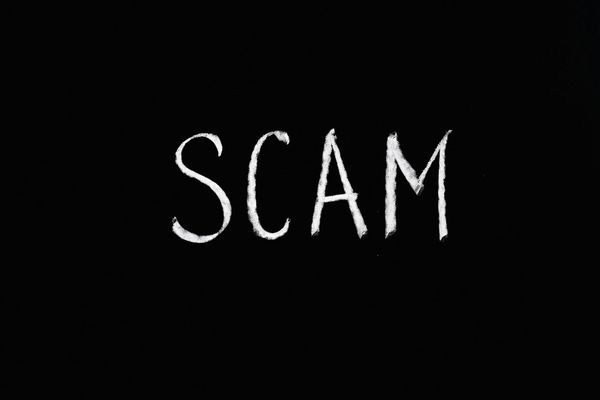Top 10 Scams Targeting Very Small Businesses: How to Stay Safe and What to Do If You're Scammed

Starting and running a very small business can be incredibly fulfilling, but it also makes you a prime target for scammers. As technology evolves, so do the tactics fraudsters use, making it harder for business owners to stay ahead. The consequences of falling victim to these scams can be severe, potentially threatening your livelihood and even closing your business.
Real-Life Story from Australia: A Business Falls Victim to an Email Hacking Scam
A small business owner in Australia became the target of a sophisticated email hacking scam. The fraudsters gained access to a supplier's email system and sent the company fake invoices with amended bank details. They even included previous email exchanges between the business and the supplier, making the communication look completely legitimate. The invoices were exact replicas of the real ones the company had been receiving for years, so nothing seemed out of the ordinary.
Believing everything was genuine, the business unknowingly transferred $190,000 to the scammers. The real supplier never received the funds and didn't even see the email responses. It wasn't until the supplier contacted the business by phone to inquire about the missing payment that they realized something was wrong. The hackers had somehow intercepted the email responses, preventing the supplier from ever seeing them.
Source: scamwatch.gov.au
Top 10 scams to watch out for when you own a small business
Understanding common scams is key to protecting your business and employees. Let’s take a closer look at the scams you’re most likely to face.
- Impersonation Scams
Scammers often pretend to be trusted individuals or organizations to pressure you into paying or sharing sensitive information. For example:
- Fake Government Officials: Scammers might pretend to be from a government agency, threatening to suspend your business license, impose fines, or sue you unless you pay bogus taxes or renew licenses.
- Phony Grant Providers: They may trick you into paying fees to apply for nonexistent business grants, claiming they are part of government aid programs.
- Bogus Trademark Representatives: Scammers might claim to represent the U.S. Patent and Trademark Office, threatening to revoke your trademark unless you pay an urgent fee.
- Fake Website Hosting Services: Impersonating tech companies, these scammers will warn that your website will be shut down unless you make an immediate payment.
Related: What Is an SSL Certificate And 6 Reasons Why Your Small Business Website Needs One (link to be added)
- Fraudulent Experts: Posing as business coaches or tech support specialists, these scammers promise to solve your business problems, but their goal is to take your money. Business coaching scams often involve fake success stories and glowing testimonials, luring you into overpriced programs that don't deliver. Tech support scams usually start with unexpected calls with the scammer attempting to gain access to your system, steal data, or charge you for unnecessary services. Legitimate tech companies won't reach out to you this way. If it happens to you, disconnect immediately and contact your trusted IT provider.
Related: Imposter Scams On The Rise: How to Protect Yourself
2. Office Supply Scams
Like in the story above, fraudsters pose as your regular office suppliers, reminding you to reorder supplies like paper or toner. If you agree, you'll receive overpriced items you never intended to purchase. In some cases, you might receive unordered goods followed by demands for payment. If you do receive goods you didn't order, you have the right to keep them without paying, according to the Federal Trade Commission.
3. Marketing, Advertising, and Reviews Scams
Scammers may trick you into paying for advertising that doesn't exist or for being listed in a fake business directory. They might ask for your contact details under the guise of offering a "free" listing or claim they need to confirm your business information. Once they have your approval, you could receive an unexpected invoice, and they may even use a recording of the initial conversation to pressure you into paying.
Other scammers promise to remove bad reviews, add positive ones, or boost your ratings on review sites. It's important to note that posting fake reviews is illegal, and endorsements must reflect genuine opinions and experiences according to FTC guidelines.
4. Vanity Awards Scams
Some scammers target business owners with fake awards, claiming they've been chosen for a prestigious title or feature in a publication. They'll ask for a fee to cover printing or promotion costs. Before paying, research the organization to confirm its legitimacy, and don't let flattery cloud your judgment.
5. Fake invoices Scams
Watch out for scammers who might sneak a fake invoice in with your regular bills. They may charge you for items or services you never requested, like advertising never shown, memberships to nonexistent trade groups, or office supplies you never ordered or received. In some cases, thieves might go as far as researching your suppliers to create invoices with names that sound familiar.
Related: What Are Invoice Scams and How Small Business Can Stay Safe
6. Utility Scams
Scammers might call or send you emails pretending to represent your utility company, claiming your electricity or internet will be shut off unless you pay immediately. These fraudsters rely on creating a sense of urgency, hoping you'll act without thinking. Legitimate utility companies will send written notices and give you multiple opportunities to pay. If you're unsure, contact the service provider using the phone number on your actual bill.
Related: Top 9 Utility Scams: Tips to Recognize and Avoid Them
7. Valuation Scams
In this scam, a fake business broker offers to help you sell your company. After charging you for a valuation or other services, they disappear without providing anything of value. If you're considering selling your business, always verify the broker's credentials and ask for references before paying any fees.
8. CEO Scam
Attackers pose as a company's CEO or high-ranking executive. They typically send an email to someone in the finance department asking for a money transfer to an account controlled by the scammers.
CEO scam is a form of Business Email Compromise (BEC) attack, which we covered extensively in another article.
Related: How to Prevent or Recover from A Business Email Compromise (BEC) Attack
9. Credit Card Processing and Equipment Leasing Scams
Fraudsters often promise lower rates for credit card processing or better deals on leasing equipment, but the contracts are riddled with hidden fees and misleading terms. Some may even change the terms after you've signed. Never sign blank documents or trust promises without getting everything in writing. If a deal seems too good to be true, it probably is.
10. Small Business Loan Fraud
When applying for loans, small businesses are at risk of falling victim to fraudsters posing as representatives from legitimate banks or organizations like the Small Business Administration (SBA). These scammers may request sensitive financial information from your business and ask for upfront deposits or fees. They often use fake email addresses and forged logos that mimic the SBA or other trusted institutions to make their offers appear legitimate.
To protect your business, always verify the authenticity of loan offers and never provide personal or financial information unless you are certain of the source's legitimacy.
What to Do If Your Business Was Scammed
- Report the Scam: Immediately report the incident to the Federal Trade Commission (FTC) at ReportFraud.ftc.gov. You should also notify your local law enforcement and any relevant state agencies.
- Contact Your Bank: If the scam involved financial transactions, contact your bank or payment processor right away. Inform them of the fraud and request that they reverse any unauthorized transactions and secure your accounts.
- Alert Your Credit Card Company: If you used a credit card, notify your credit card issuer. They can assist with reversing charges and investigating fraudulent activity.
- Notify Your Vendor or Partner: If the scam involved a supplier or business partner, let them know about the incident. They may be able to assist or take additional steps to protect their own systems.
- Review and Secure Your Accounts: Examine your business accounts, including bank accounts, credit accounts, and digital platforms, for any unusual activity. Change passwords and update security measures to prevent further breaches.
- Inform Your Insurance Provider: If you have business insurance that covers fraud or cybercrime, contact your insurer to file a claim. They may provide financial recovery and guidance on the next steps.
- Educate Your Team: Share details of the scam with your employees to prevent future incidents. Consider additional training on recognizing and handling potential fraud.
- Conduct an Internal Review: Assess how the scam occurred and identify any weaknesses in your processes. Strengthen your internal controls and procedures to safeguard against future scams.
- Consult a Legal Expert: If the scam has significant financial implications or legal consequences, seek advice from a lawyer experienced in fraud cases to understand your rights and options.
- Report it to the FTC at ReportFraud.ftc.gov or the relevant authority from your country.
If you found this article helpful, read also What Key Cyberthreats Do Small Businesses Face?
The more you understand what is happening, the better decisions you make to safeguard your company and customer data.
How to Protect Your Small Business
- Verify Identities, Emails, Invoices, and Transactions. Double-check payment requests and invoice details before making payments. Confirm the legitimacy of requests through a separate communication channel if you have any doubts.
Related: 10 Cybersecurity Tips to Protect Your Small Business Data
- Train Your Team: Regularly teach your employees how to spot phishing attempts and other scams. It's all about making sure they know what to look out for.
- Use Strong Passwords: Encourage everyone to use unique, strong passwords and set up multi-factor authentication to add an extra layer of security.
- Stay Updated: Keep all your software and systems current with the latest updates and security patches. This helps close any potential gaps that hackers might exploit.
- Protect Your Data: Encrypt sensitive information and back it up offline in a secure location, separate from your main network.
- Limit Access: Only give employees access to the data and systems they need for their job. This helps minimize risk.
- Have a Plan: Prepare an incident response plan so you can quickly handle any security issues that arise.
- Use Good Security Tools to make your life easier and safer.
Bitdefender Ultimate Small Business Security is here to help you with comprehensive protection designed specifically for small businesses. Here's what it offers:
- Phishing and Email Protection: Stops phishing scams and fraudulent emails before they reach your inbox.
- Malware Defense: Keeps your Windows PCs, Macs, iPhones, Android phones, and Windows servers safe from malware, including ransomware.
- Password Manager: It helps you create strong passwords and keeps them secure.
- VPN: Provides unlimited VPN traffic to keep your remote connections safe.
- Scam Copilot: Uses AI to help your team spot scams and avoid threats while boosting your cybersecurity skills.
- Easy to Use: Features a straightforward dashboard that anyone can manage, with no IT expertise needed.
Bitdefender Ultimate Small Business Security is an easy-to-use, all-in-one, affordable solution that protects your business. Check it out at bitdefender.com/solutions/small-business-security.
tags
Author
Cristina is a freelance writer and a mother of two living in Denmark. Her 15 years experience in communication includes developing content for tv, online, mobile apps, and a chatbot.
View all postsRight now Top posts
Scammers Sell Access to Steam Accounts with All the Latest Games – It's a Trap!
May 16, 2025
FOLLOW US ON SOCIAL MEDIA
You might also like
Bookmarks







